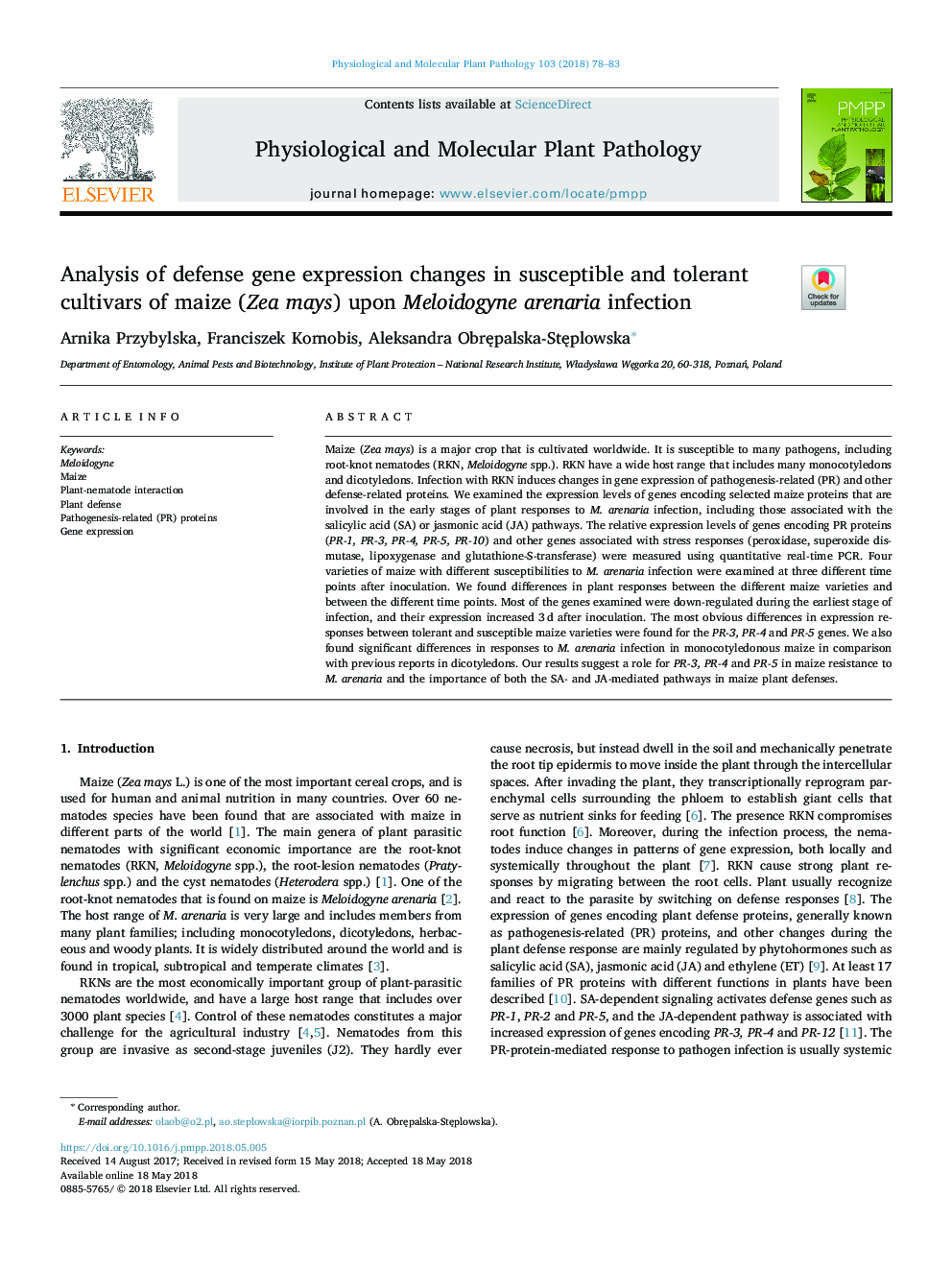| Article ID | Journal | Published Year | Pages | File Type |
|---|---|---|---|---|
| 8649171 | Physiological and Molecular Plant Pathology | 2018 | 6 Pages |
Abstract
Maize (Zea mays) is a major crop that is cultivated worldwide. It is susceptible to many pathogens, including root-knot nematodes (RKN, Meloidogyne spp.). RKN have a wide host range that includes many monocotyledons and dicotyledons. Infection with RKN induces changes in gene expression of pathogenesis-related (PR) and other defense-related proteins. We examined the expression levels of genes encoding selected maize proteins that are involved in the early stages of plant responses to M. arenaria infection, including those associated with the salicylic acid (SA) or jasmonic acid (JA) pathways. The relative expression levels of genes encoding PR proteins (PR-1, PR-3, PR-4, PR-5, PR-10) and other genes associated with stress responses (peroxidase, superoxide dismutase, lipoxygenase and glutathione-S-transferase) were measured using quantitative real-time PCR. Four varieties of maize with different susceptibilities to M. arenaria infection were examined at three different time points after inoculation. We found differences in plant responses between the different maize varieties and between the different time points. Most of the genes examined were down-regulated during the earliest stage of infection, and their expression increased 3â¯d after inoculation. The most obvious differences in expression responses between tolerant and susceptible maize varieties were found for the PR-3, PR-4 and PR-5 genes. We also found significant differences in responses to M. arenaria infection in monocotyledonous maize in comparison with previous reports in dicotyledons. Our results suggest a role for PR-3, PR-4 and PR-5 in maize resistance to M. arenaria and the importance of both the SA- and JA-mediated pathways in maize plant defenses.
Related Topics
Life Sciences
Agricultural and Biological Sciences
Plant Science
Authors
Arnika Przybylska, Franciszek Kornobis, Aleksandra ObrÄpalska-StÄplowska,
